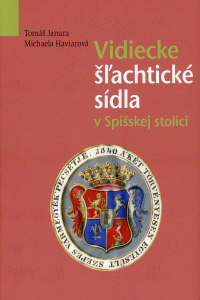| PhD program at the IH SAS |
|
At the IH SAS course of doctoral study on “Slovak History”/”World History” for internal and external doctoral students of SAS, Faculty of Arts of the Comenius University and The Faculty of Humanities of the Matej Bel University in Banská Bytrica is organized by Eva Kowalská, Marína Zavacká, Ladislav Vörös and others.
PhD studies at the IH SAS consists form several forms of education. Four basic forms are:
- study and research under the tutorship of supervisor (regular weekly consultations between student and supervisor and with other researchers from IH SAS);
- academic formation in the environment of the Institute through the participation at scholarly projects and events (conferences, workshops and colloquiums);
- active support from the IH SAS for participation at doctoral scholarships and long-term exchange research fellowships;
- course of PhD colloquiums focused on methodology of historiographical research and the theory of history.
This course of PhD colloquiums is comprised form lectures, colloquiums and interactive workshops. Critical evaluation of the PhD projects of the 1st year students and the methodological/theoretical chapters of the (upcoming) PhD thesis of the 2nd year students is also part of this intensive PhD program.
Cumulative colloquiums represent an all-day activity which take place in three days and have their principal topic (every day of the colloquium is focused on a special topic – see the list below). Historians and researchers from other related disciplines of social sciences or humanities give lectures on those topics, so there is and increased focus on interdisciplinary character of the colloquiums. During two years (that is four semesters) PhD students are instructed on 8 basic cross-sectional topics of historical research, while the main goal is to broaden their abilities to gain pieces of knowledge, theories and methodologies from other humanities and social sciences.
SEMESTER I
1. Nationalism and Historiography – Problematic Aspects of the Traditional Genres of National Historiographies
A) What is nationalism? (Overview of concepts and
theories.)
B) Historians as “scholarly” legitimators and proponents of nationalism.
C) Methods of critical study of nationalism as historical phenomenon. How to
take measures against “methodological nationalism” – the elimination of the
possible formative influences of nationalist ideologies and discourses in the
work of a historian.
2. Memory, Collective Memory, Politics of Memory and the Professional Historiographies
A) Overview of concepts and theories of collective
memory and politics of memory.
B) Historians as the authors of history narratives used and abused in the
policies of memory. Is historiography a discipline doomed to be permanently
abused by the holders of power?
C) Methods of critical study of the collective memory, politics of memory,
“invention of traditions” (E. Hobsbawm et al.) as a historical phenomenon.
SEMESTER II
3. Discourse and Discourse Analyses
A) What is discourse? Schools of discourse analyses. (Overview
of concepts, theories and methods.)
B) History as a particular form of discourse and historians as participants in
discourses.
C) Discourse analyses and its uses in the historical research. Schools and
projects working with discourse analyses: Begriffsgeschichte/Geschichtliche
Grundbegriffe (R. Koselleck et al.) and the Cambridge school of the history of
political thought (J. Pocock, Q. Skinner et al.).
4. Social Stereotypes
A) Social stereotypes and stereotyping. (Overview of
concepts and theories.)
B) Social stereotypes in national history narratives, historians as scholarly
legitimisers of social stereotypes, stereotypical constructions and theories
C) Methods of critical study of social stereotypes and the functionings of
stereotyping in the past (preferably demonstrated on the example of case studies
both from modernand pre-modern era).
SEMESTER III
5. Theory of History, Philosophy of History – Ontological and Epistemological Considerations
A) The philosophies of history – main trends and
authors. (Overview of concepts and theories.)
B) Epistemology of scholarly history writing. Objectivity and subjectivity of
the past and the historical knowledge. The questions of form and content:
narrative vs. analyses, theory of representation – A. Danto, L. Mink, H. White,
F. Ankersmit, P. Roth.
C) The status of historiography as a scholarship/(science?) and the social
purpose of historiography and history. Formative influences on the epistemology
of history coming from outside of historiography as a scholarly discipline.
6. Ideology
A) Overview of concepts and theories of ideology – the
problem of “omnipresent ideology”. How ideological can history writing be?
B) Ideological determinations and influences on historiography in the 19th, 20th
and 21st centuries: Case studies of nationalist-liberal,
nationalist-conservative, fascist, Marxist-Leninist, and pluralist-democratic
ideological history writing.
C) Methods of critical study of the great political ideological systems of the
19th and 20th centuries: Liberalism, Socialism, Communism, Fascism/Nazism,
Democracy – the doctrines, theories and practice.
SEMESTER IV
7. The Modernity – Theories of Modern State and Modern Society
A) Overview of concepts and theories of modernity – the
great classics and their critiques (K. Marx, F. Tönnies, M. Weber, E. Durkheim,
G. Simmel, V. Pareto, T. Parsons, A. Giddens, Z. Bauman, M. Foucault, P.
Bourdieu)
B) The “birth” of the modern man, modern society, modern politics and modern
state from sociological and historical perspectives. The continuities and
discontinuities between the pre-modern and modern era.
C) The problems and pitfalls of grand theories of society and societal
development.
8. Nation, Nationality, Ethnic group, Ethnicity, Race, Identity – Some of the Ruling Concepts of the Modern and “Post-Modern” Era
A) Social history of the concepts and their use in
19th, 20th and 21st centuries.
B) The problematic aspect of the using of categories social practice as
categories of scholarly analyses – the fallacies of essentialism and reification.
C) Deconstruction of the great concepts of the modern era – a methodology for
analytical historiography.
Internal doctoral students of IH SAS - The current list of PhD. students in the years 2012 - 2015








